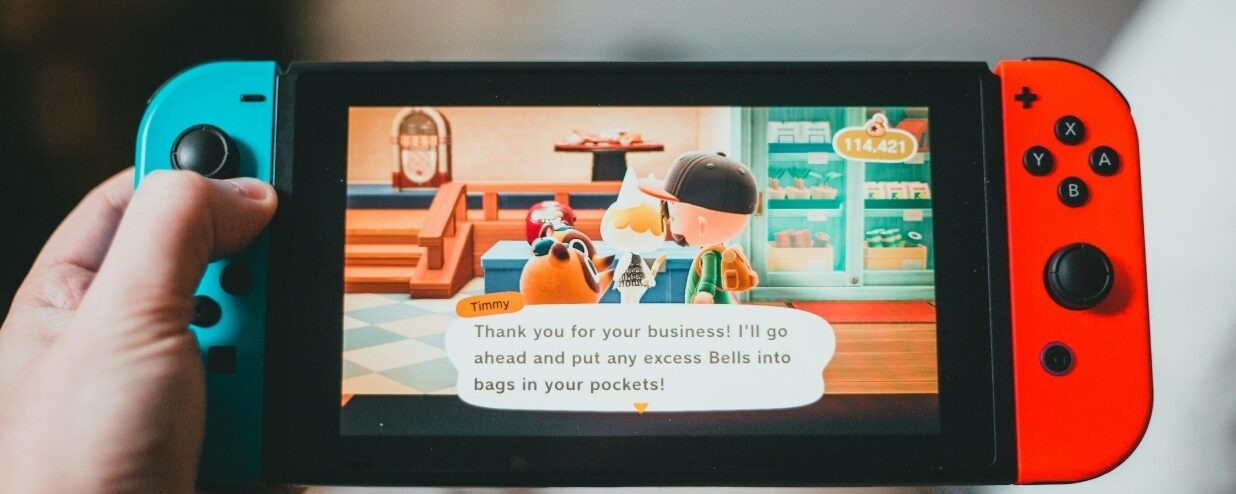Many of us grew up playing Japanese video games, some of the most popular including Legend of Zelda, Mario, and Pokémon, but did you ever consider using them to learn Japanese? Generally, people think of anime for learning Japanese, but video games might have some of the same benefits, if not more!
Video games can immerse you in authentic Japanese conversation, provide intriguing stories, and even help you improve your reading, listening, and comprehension skills. Whether you’re fighting legendary enemies, solving tough riddles, or exploring breathtaking worlds, games make learning feel effortless and enjoyable.
Why Learn Japanese with Video Games?
While there are video games designed for studying Japanese, conventional video games meant for entertainment can be an amazing tool to learn the language. Video games that are very story-driven can provide exposure to not only dialogue, but also reading comprehension and contextual listening practice as well. Also, since you have to participate (not watch passively), understanding dialogue or text is necessary to complete the game.
Video games may prove to be a safe environment to pressure-test and expand your Japanese. You might be thrown into situations reflecting real life (without the real-life consequences) where you have to comprehend directions or important dialogue using context, all on a moment’s notice. This makes video games a great method for natural language acquisition. However, as you may know, there are a variety of video games, and some may be better for picking up language than others.
Pros and Cons of Learning Japanese with Video Games
There are pros and cons to learning Japanese video games; some are great for learning Japanese, while others may be a great excuse to play video games under the guise of actual practice.
Pros to Learning Japanese with Video Games:
1. Great for natural language acquisition
Words and dialogue are paired with visuals (oftentimes visual demonstrations) as well as a task you must complete. So, you’ll be exposed to an environment that introduces new terminology and requires a response or action from the gamer.
2. Immersive Japanese Practice
Video games serve as excellent Japanese practice through immersion. Similar to anime, since you are constantly listening to or reading tons of Japanese, you will gain a ton of practice while having fun!
3. Learning by context
Learning a language by paying close attention to visual and contextual clues is a great way to pick up more of it. Figuring out the meaning of certain words or expressions by trying to understand the context surrounding them is a great way to naturally learn a language and have it stick.
4. Fun and Motivating
Making language learning fun and enjoyable can help remove the stress and chore of studying while also being more motivating. Doing something you like in another language is an effective way to learn since it somewhat resembles how you learnt your native tongue as a kid. You just learnt naturally while doing different activities.
Cons to Learning Japanese with Video Games
1. Many Video Games have Little to No Dialogue
There are a lot of video games out there, and many don’t require any language at all. So, you’ll need to be particular about which genre you choose since some inherently have no language at all. For instance, games like Street Fighter, Tetris, or online shooters probably don’t require any language in order to play the game beyond getting past the menu.
2. Many of your Favorite Titles might be too hard for Beginners
While you might want to try playing video games to learn Japanese, many of your favorite titles, such as Ace Attorney, might be too difficult for beginners or even intermediate learners. It might end up making the game more frustrating rather than fun to learn. So, for this reason, we made the list below based on skill level.
3. Varying Degrees of Listening Material
Japanese video games might have more reading practice than listening, especially JRPGs (Japanese Role Playing Games). Often, they might have you read more text while providing very little audio dialogue. These games are great for reading practice, but not always for listening. Of course, it does depend on the game, and many modern titles have more audio dialogue.
Learning Japanese with Video Games for Beginners
With all that out of the way, let’s get into our top picks for video games that are best for learning Japanese. We chose titles separated by skill level (beginner, intermediate, and advanced) and genres that would have the most dialogue or language practice possible.
All the games on the list are available either on Steam, app stores, or one of the latest consoles (Nintendo Switch, PS5, and Xbox Series S/Series X)
1. Final Fantasy Series I – VIII (Classic)
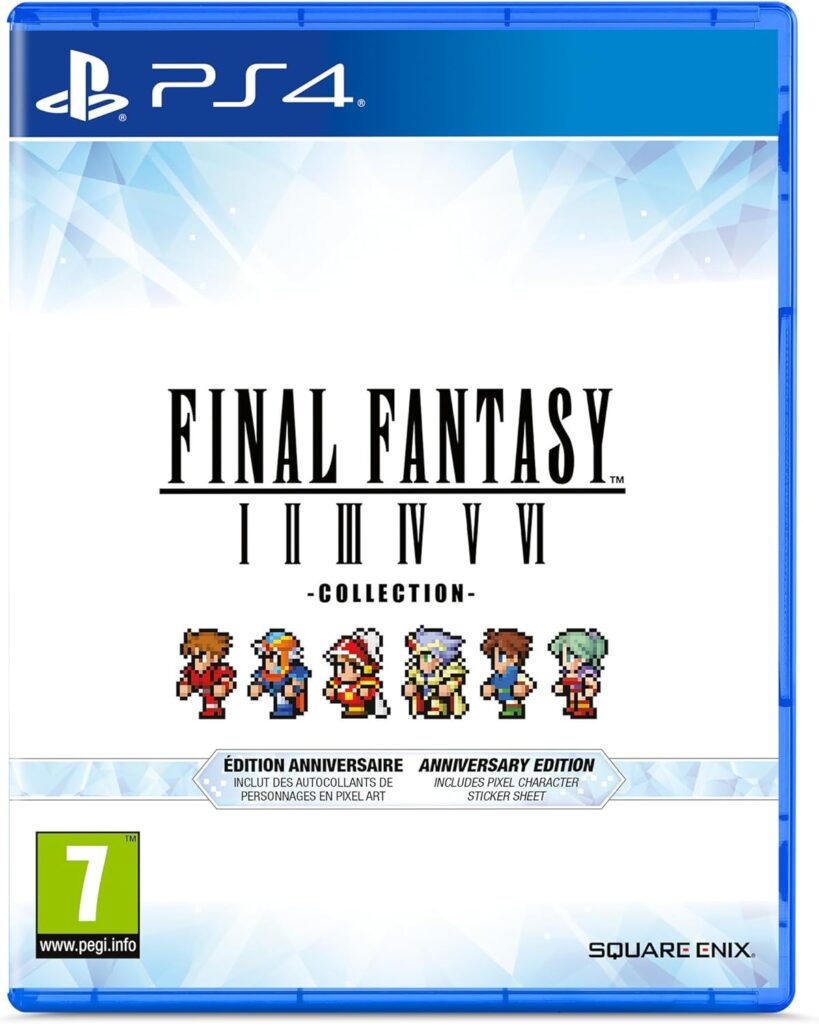
Genre: RPG, Strategy
The classic Final Fantasy series may prove to be excellent reading practice for beginners, with tons of rather simple, shorter dialogue constant throughout the game. These are turn-based RPGs where you usually plan out strategies similar to chess. You can play the game and even read the dialogue bubbles at your own pace. You can take as long as you want to read the dialogue and plan your next move.
Note that Final Fantasy I – VI have not been adapted to the latest consoles, but are all available on Steam.
Why it’s great for Japanese learners:
The turn-based strategy may make these games sound more like chess rather than a video game, but Final Fantasy (especially VIII) has captivating stories, well-written characters, and amazing world-building packed with interesting themes. Plus, you’ll be completely drawn into building your characters, and the sense of accomplishment keeps you hooked.
2. Super Mario Party Jamboree
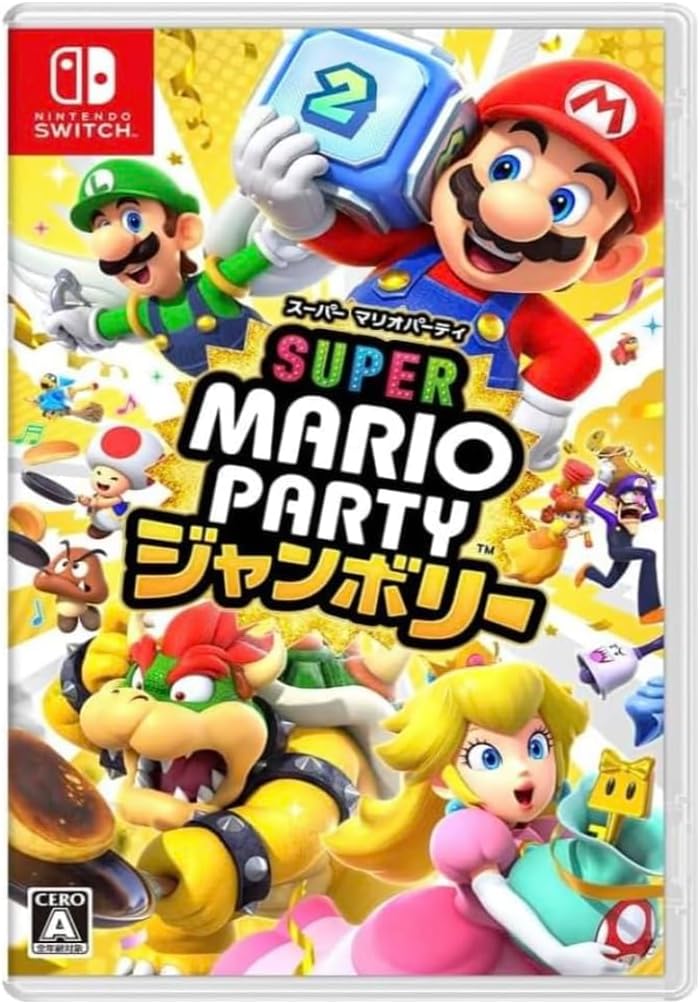
Genre: Party, Platform, Puzzle
Super Mario Party may not be the first game that comes to mind when looking for a video game to practice Japanese. However, there are tons of directions the game throws at you. Since the games consist of different mini-games, items, and different board rules, you’ll need to read and understand different descriptions in Japanese. The game always has furigana.
3. Animal Crossing: New Horizons
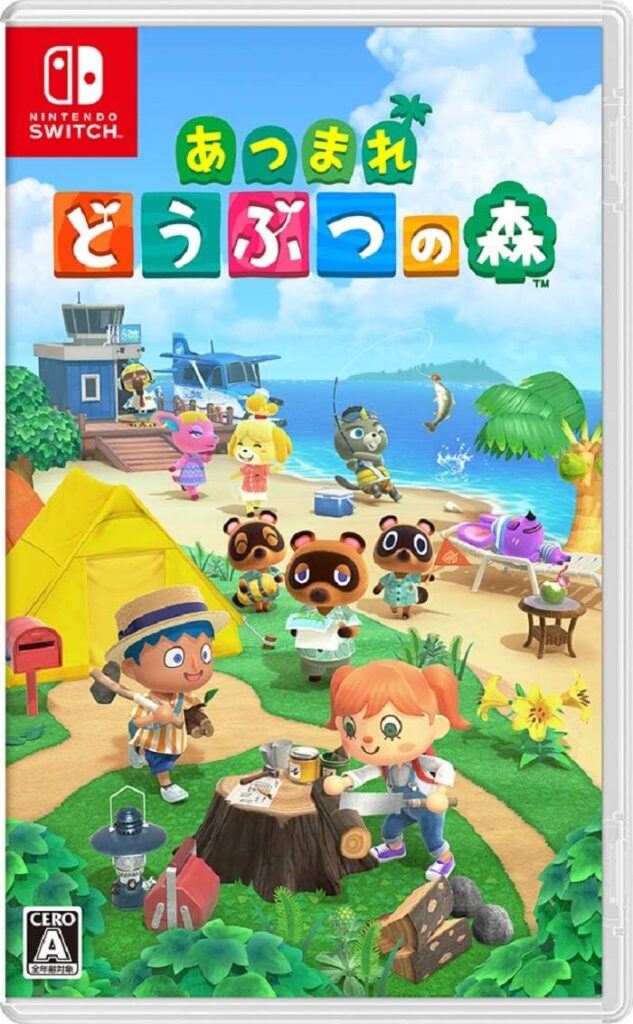
Genre: Life simulation, Social Simulation
A charming and delightful game where you develop and design your home, garden, and even town. You can design gardens, homes, and more. You can even develop your little town into a metropolis and get into the stock market (pun intended), where you can invest in turnips whose prices rise and fall similar to company stocks. You can find creative ways to build your island and design everything the way you like it. No two islands are the same.
Why it’s great for Japanese learners:
Everyday conversational Japanese, simple menus, and plenty of repetition. Text is written in hiragana and kanji (often with furigana), making it very accessible for beginners.
4. Pokémon (All games)
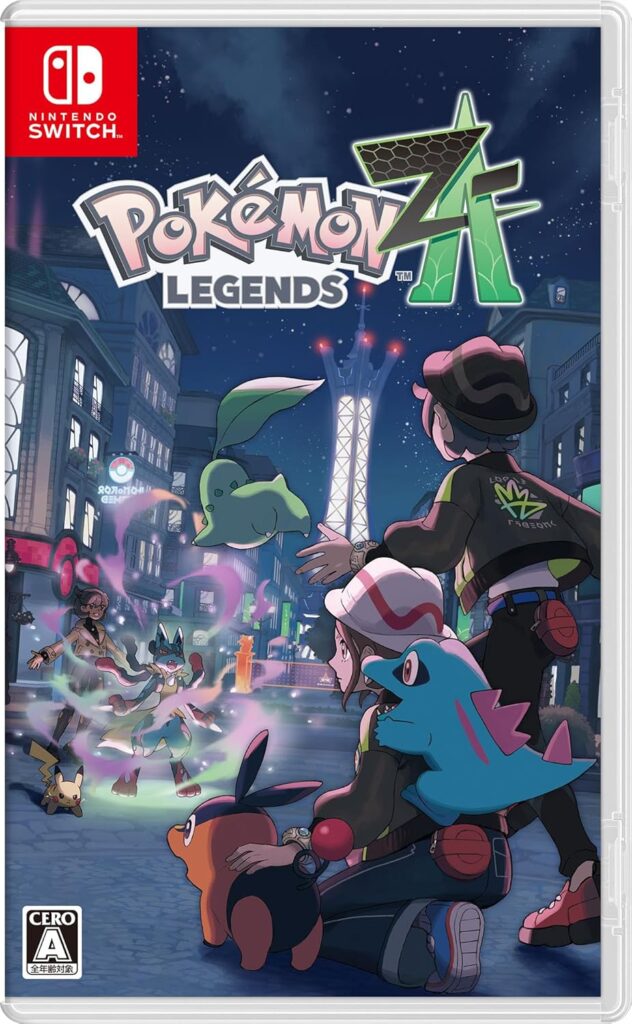
Pokémon is a beloved series by fans all over the world and is probably one of the biggest franchises in gaming history. You probably already know this game, but in case you don’t, this game is based around catching Pokémon (short for pocket monster), upgrading and using them to fight other Pokémon. There is a whole strategy and system where different Pokémon types are stronger than others, have specific abilities, or benefit from certain environments.
Why it’s great for Japanese learners:
This game makes for great reading practice, especially for katakana. Almost every Pokémon’s name is written in katakana, so as you keep collecting them, you’ll develop your katakana reading abilities. There are also texts with simple Japanese conversation, featuring clear and repetitive vocabulary, making the series great for beginners.
5. Legend of Zelda: Tears of the Kingdom
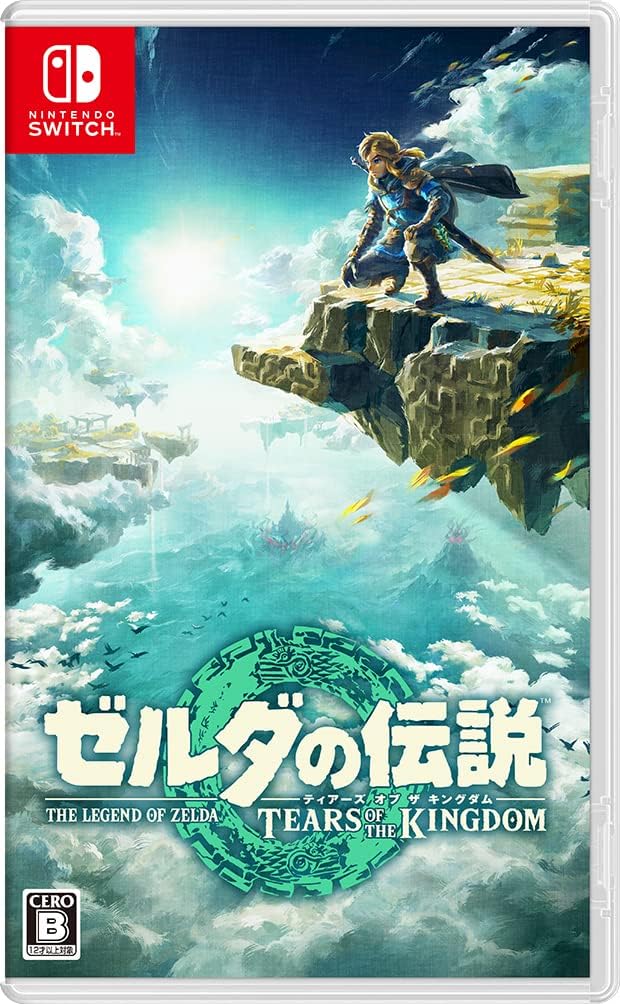
The latest Legend of Zelda, along with its predecessor, Breath of the Wild, are both masterpieces in open-world gameplay, combining puzzles, adventures, and action. The game lets players explore the detailed world and find their own solutions to problems or obstacles. There is no linear way to do anything, and the game wants to encourage your own creativity.
Why it’s great for Japanese learners :
The game has a decent mix of polite and casual dialogue, quest-based instructions, and item vocabulary. Additionally, the open-world gameplay reinforces words through context.
Learning Japanese with Video Games for Intermediate
6. Ni no Kuni (1 and 2)
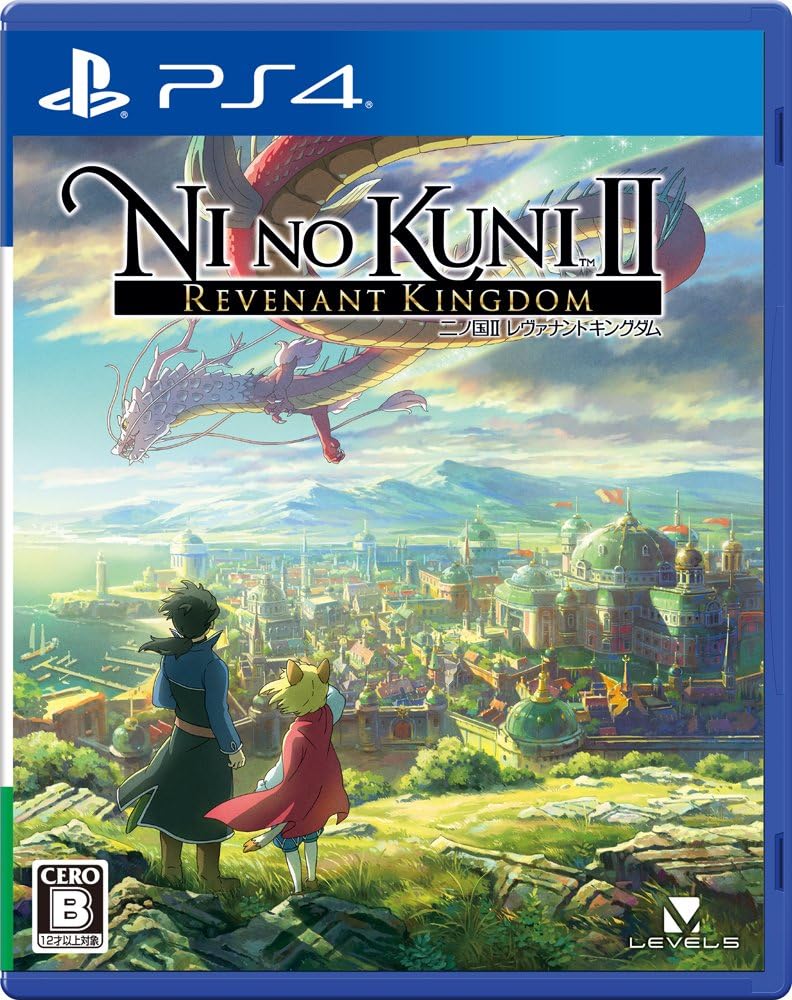
Genre: RPG, Puzzle
If you’re a fan of Ghibli and video games, these games are right up your alley since the creators worked directly with Studio Ghibli for the game’s animation. In the game, you follow a young boy named Oliver in his adventures to save his mother in another world. You really feel like you are in the world of Ghibli as you traverse the world alongside some incredible characters. The amazing soundtrack is by the same composer as many of Ghibli’s greatest hits, which, combined with its charming story, this game hits you in the right spots at the right moments and takes you on an emotional rollercoaster.
As combat is relatively simple, the game still comes with a tutorial system to guide new players who may be unfamiliar with the game itself.
Why it’s Great for Japanese learners:
The games consist of clear spoken Japanese, along with Japanese subtitles, giving you the best of both. The language is not too complicated, but would require some familiarity with conversational spoken Japanese. This is a great bridge into intermediate.
7. KUUKIYOMI: Consider It
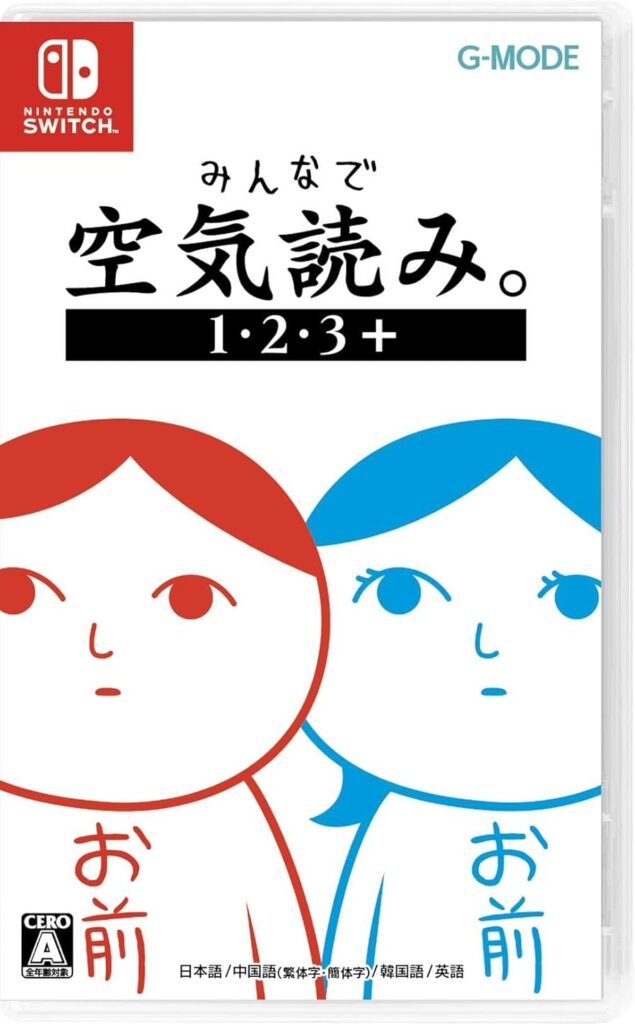
Genre: Puzzle, Indie, Simulation
Kuukiyomi is one of the Japanese phrases that are difficult to translate, but its closest equivalent is “reading the air” or “reading the room”. This game tests your awareness and consideration of others (a common Japanese sentiment). The scenarios are based on common situations in Japan. However, they are usually presented with a touch of absurdity, making the game light-hearted and humorous.
Why it’s great for Japanese learners:
The situations can range from letting an elderly person sit on the train to pretending to sleep when Santa is around. This game is an incredibly fun (and funny) way to both learn Japanese and Japanese cultural etiquette, where you win with your killer manners. As they say: 一石二鳥 (isseki nichou) — two birds with one stone!
The Japanese text doesn’t usually have any furigana, so it might be a bit difficult for beginners. Also, the directions and game results consist of longer text with a decent dose of kanji. But it is a fun game for everybody, no matter your level!
8. Ghost of Tsushima & Ghost of Yotei

Genre: Action-Adventure, Historical, Open World
Set in feudal Japan during the Mongol invasion, Ghost of Tsushima (and soon to released Ghost of Yotei) offers breathtaking scenery, cinematic battles mirroring jidaigeki (samurai films), and dialogue inspired by samurai-era Japanese. The game can be played fully in Japanese audio with subtitles, making it feel like a cinematic samurai drama.
Why it’s great for Japanese learners:
It’s excellent for intermediate and advanced learners interested in historical and formal Japanese speech. The subtitles allow you to learn Japanese, similar to how you would with anime, except that since you’re participating in the story, the new vocabulary might stick even more. You’ll also hear honorific and warrior-related vocabulary, which offers a deeper cultural perspective. There are also repetitive phrases said throughout the game.
10. Persona 5
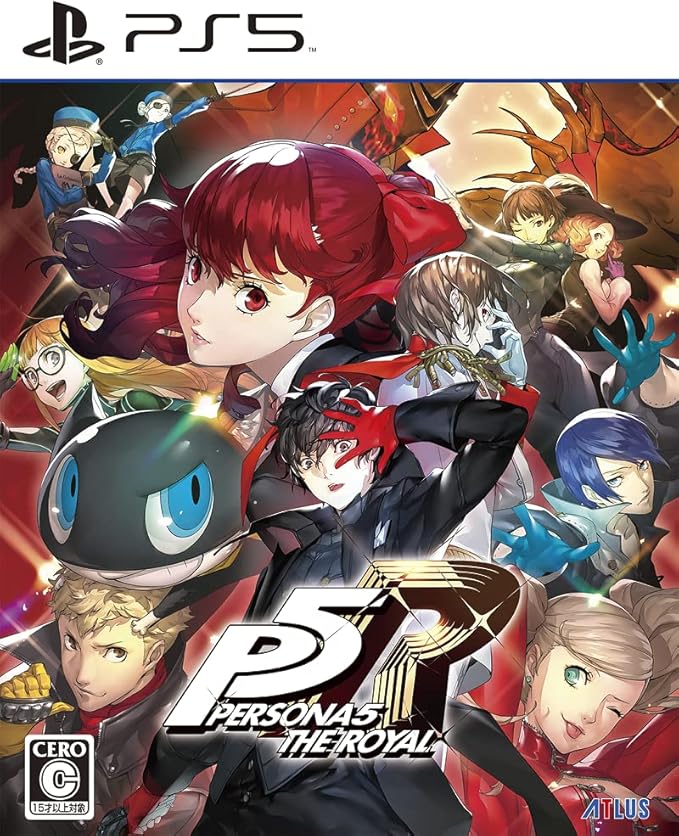
Genre: RPG, Social Simulator
Persona 5 blends dungeon crawling with Japanese high school life, meaning you’ll experience both fantasy combat dialogue and everyday school conversations. The game’s setting in Tokyo also gives insight into modern Japanese youth culture, slang, and casual expressions.
Why it’s great for Japanese learners :
Persona uses kanji with furigana, which is perfect for learners building reading confidence. The dialogue is conversational and often mirrors how teenagers actually speak. Upper-intermediate learners will especially benefit, as the game introduces lots of casual phrasing and slang in addition to standard Japanese.
Learning Japanese with Video Games for Advanced
9. Resident Evil: Biohazard Series
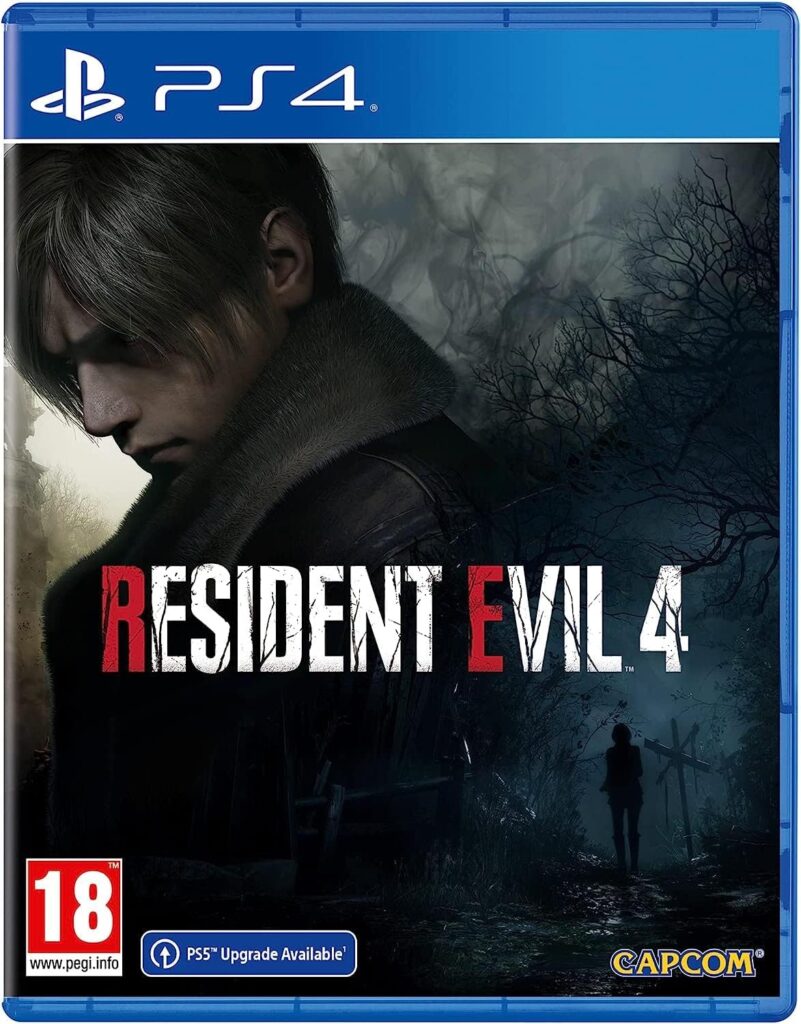
Genre: Survival Horror, Action
This globally popular series immerses you in tense, dramatic scenarios filled with survival dialogue, notes, and mission instructions. The series is perfect for horror and mystery enthusiasts with its complex puzzles, constant fear of something chasing you, and captivating stories filled with action. The Japanese version often uses military-style or urgent commands, giving exposure to more serious and action-oriented vocabulary.
Why it’s great for the Japanese:
Resident Evil provides practice with reading in high-stakes contexts (notes, reports, instructions). While some vocabulary is specialized, the game helps learners get used to fast-paced spoken Japanese in action scenes. Best suited for intermediate and advanced learners.
10. Yakuza: Ryuu ga Gotoku Series (龍が如く)
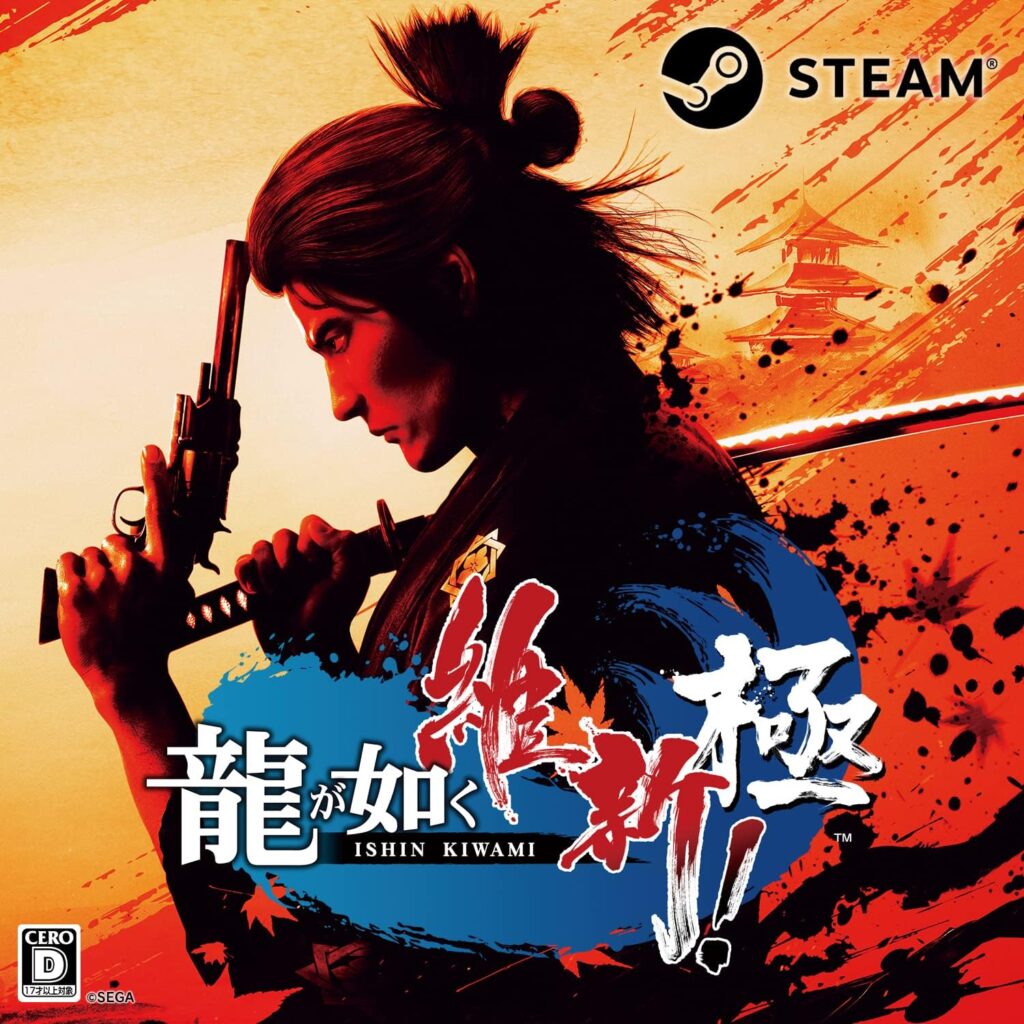
Genre: Action-Adventure, Crime Drama
Set in Japan’s nightlife districts, Yakuza combines dramatic storytelling with quirky side missions. You’ll encounter realistic conversations ranging from polite shop dialogue to tough street slang, karaoke banter, and even business negotiations.
Why it’s great for Japanese learners:
Advanced learners will thrive here, as the game uses a wide spectrum of speech styles from keigo to rough Kansai slang. It’s one of the most authentic representations of conversational Japanese you’ll find in gaming.
11. Ace Attorney Series
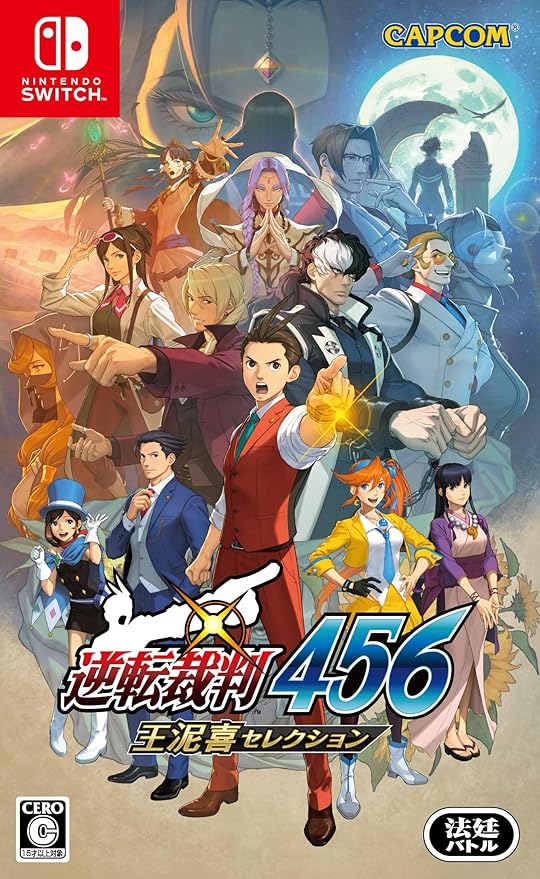
Genre: Virtual Novel, Puzzle Game
The Ace Attorney series consists of incredible games filled with rich dialogue and fun stories revolving around fascinating criminal cases that are taken to court. In the originals, you play as Phoenix Wright, a defence attorney, whose dedication to justice and finding the truth allows him to defend his innocent clients. You must cross-examine witness testimonies, look for contradictions, and present the correct evidence to win the case. When you find something wrong, make sure to raise an “Objection!”.
Why it’s great for Japanese learners:
Ace Attorney is packed with legal banter as well as conversational Japanese, since you have to speak to different witnesses both in and out of the court. This series would make for great reading and listening comprehension practice for advanced learners since you have to analyze different arguments and find contradictions.
12. Steins;Gate
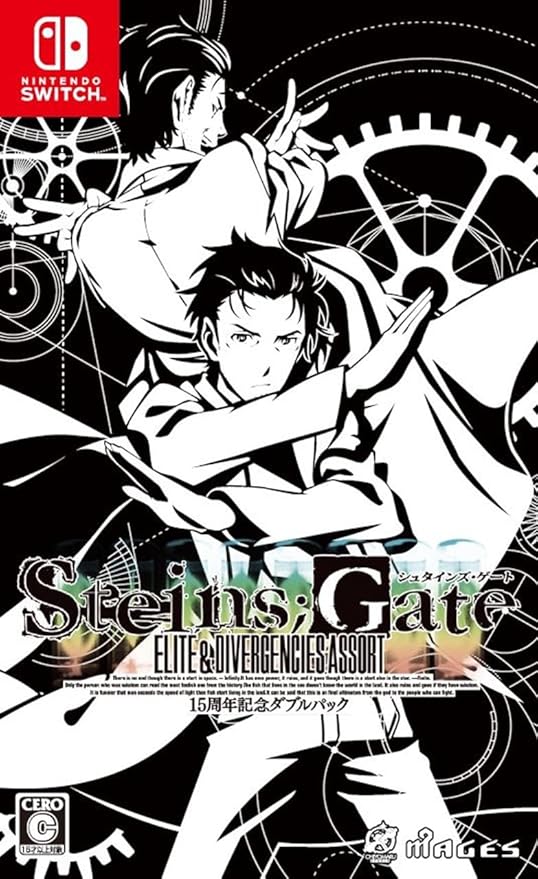
Genre: Visual Novel, Sci-Fi, Mystery
Steins;Gate is one of the most iconic Japanese visual novels, blending science fiction with thriller and slice-of-life elements. You follow a group of eccentric university students and self-proclaimed “mad scientists” who stumble upon a way to send messages to the past, triggering intense consequences. The story is text-heavy, with hours of dialogue, narration, and inner thoughts all fully voice-acted in Japanese.
Why it’s great for Japanese learners:
Because Steins; Gate is dialogue-driven, you’ll encounter natural, everyday Japanese as well as more technical vocabulary tied to science and time travel. The characters each have distinct speaking styles — from casual slang to more formal or quirky speech patterns — which helps you pick up on tone and nuance. The text often mixes kanji with furigana, making it easier to follow even for learners who aren’t advanced readers yet.
Learning Japanese with Video Games vs Anime
Anime, being a form of media that you watch, is very dialogue-heavy. It is an excellent listening practice and exposure to realistic Japanese conversation.
By contrast, video games are not always dialogue-driven. Games don’t always require reading, listening, or understanding any language. Fighting games or puzzle games like Candy Crush generally require little to no Japanese to play. However, when video games do require language to understand, they can provide all the same benefits as anime, but with the added benefit of actually having you participate.
There are more incentives to listen more closely and use context clues to figure out the meaning of directions or dialogue, since that could prevent you from making progress. Anime will move on whether you caught everything or not.
Tips to Learn Japanese with Video Games
We recommend going a bit further than simply changing the language setting of all your favorite video games. To get the most out of learning Japanese with video games, we recommend the following:
1. Find games suited to your level
It is best to find video games that are better suited to the level at which you are most comfortable. Otherwise, the amount of Japanese might feel too overwhelming and take away from the enjoyment of both the game and the process of language learning. This would defeat the purpose of playing video games to practice Japanese in the first place.
2. Choose genres more conducive to picking up Japanese
Something like Street Fighter or Tekken probably won’t encourage much reading since the games are simply about fighting opponents. A couple of genres we recommend instead:
Visual novels
- Games like Phoenix Wright and Ace Attorney are great for language learning since they come with rich dialogue and materials you have to read (or listen to) to get through the game and immerse yourself in the story.
RPGs
- RPGs like Final Fantasy are narrative-driven, requiring you to read or listen to dialogue and make decisions or respond to other characters.
- Sometimes these decisions will directly affect the outcome of the game, so you need to ensure you comprehend everything being said correctly.
3. Use context to figure out what you don’t know
This will help you acquire the language naturally by figuring out the meaning of certain phrases by understanding the context surrounding them. However, do keep a phone or translator handy in case there’s a word you need to know that’s keeping you from progressing in the game.
Conclusion and Next Steps
From simple greetings in Animal Crossing to the complex slang of Yakuza or the cinematic Japanese of Ghost of Tsushima, playing video games in Japanese is one of the most enjoyable ways to reinforce your learning. But the real key to improvement is using what you learn in actual conversation.
Want to boost your conversation skills? Practice in a fun, interactive classroom with fellow students at language schools like Coto Academy! At Coto Academy, our professional teachers can help you bridge the gap between passive recognition and active use. In our conversation-focused lessons, you’ll practice using these words in everyday situations, improve your fluency, and gain confidence. We offer intensive Japanese courses as well as part-time options, so whether you want to immerse yourself fully or fit lessons into a busy schedule, there’s something for you. Start your journey to speaking Japanese confidently today!
FAQ
Can playing video games really help me learn Japanese?
Yes, video games immerse you in a Japanese language environment, exposing you to vocabulary, sentence structures, and cultural nuances in an engaging way. They provide context-rich repetition of words and phrases, helping reinforce vocabulary naturally.
Are video games a substitute for formal Japanese language learning?
Not entirely. While games are an excellent supplementary tool for building vocabulary and reinforcing language concepts, structured learning through classes or resources is still essential for mastering grammar and fluency.
Can I use Japanese subtitles while playing?
Yes, many games allow you to switch the language settings to include Japanese audio with English or Japanese subtitles. For example, Ni no Kuni and Resident Evil 7 Biohazard are great for practicing reading and listening simultaneously.
Are there games with a steep language learning curve?
Yes, games like the Ace Attorney series have complex Japanese text, often featuring Kanji without Furigana. These games are better suited for intermediate to advanced learners seeking a challenge.
What video games are best for beginners learning Japanese?
Pokémon, Animal Crossing: New Horizons, and Ni no Kuni are great for beginners because they use simple vocabulary and repeat phrases often.
Are visual novels like Steins;Gate good for studying Japanese?
Definitely. Visual novels are text-heavy and fully voice-acted, which makes them excellent for practicing reading and listening simultaneously
Do all games have the option to switch to Japanese?
Most games from Japan allow you to switch to Japanese. Note that if your console or operating system is in English, the game will likely default to English.
Are video games or anime better for learning Japanese?
Both have their pros and cons. Starting with the pros:
- Anime has tons of dialogue that allows viewers to get tons of listening practice.
- Video games can provide listening and reading practice where learners can learn Japanese from context and participation.
Cons of both:
- Many video games don’t have much language involved, so you need to pick the right genre
- It could be easy to passively watch anime without really paying attention to the Japanese language
Love reading this? You might enjoy reading related blog posts on:
